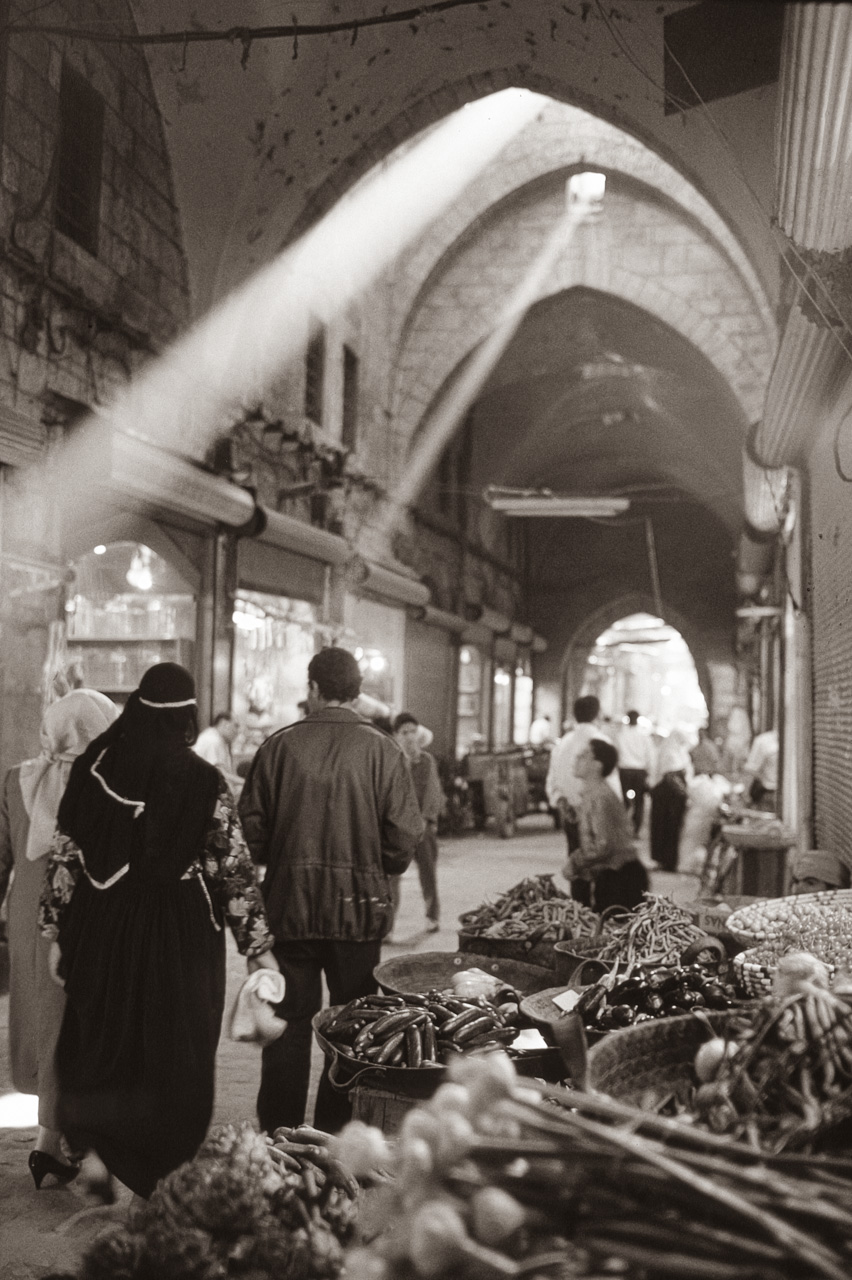The Al Madina souq is one of the most magical places I have ever visited.
The bazaar is a labyrinth of covered markets in the heart of Aleppo’s old quarters which would stretch out 13 kilometres if the streets, alleys and paths were laid end to end. When you enter the souq you walk back in time to the 14th century. For hundreds of years, traders have congregated at the Aleppo souq to sell anything you can imagine. It is a throbbing metropolis with money being exchanged in every corner, with donkeys competing with motorised carts in the alleys and with the aroma of Eastern spices competing with the smell of diesel.
Sadly many sections of al Madina souq were destroyed in fires as a result of the recent battles in Aleppo. The loss of this cultural icon – the pride of all Aleppines – surely brings a tear to the eye of anyone who has experienced the magic of Aleppo’s souq.
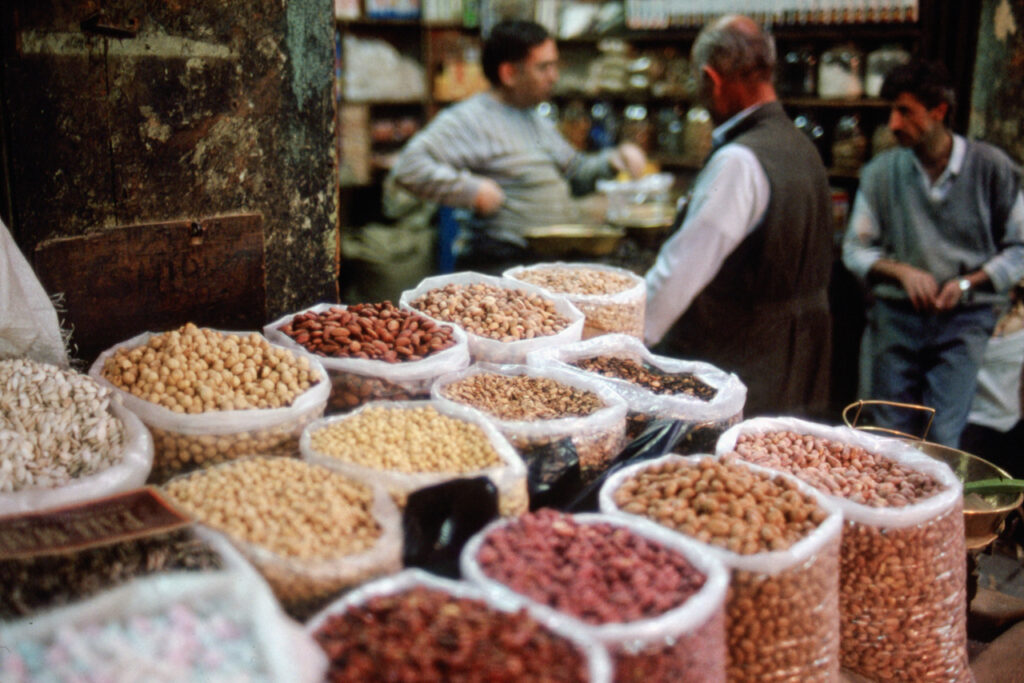
Al Madina souq is actually a collection of numerous speciality souqs. If you’re after soap you go to the soap souq, for leather go to the leather souq and for jewelry to the jewelry souq. If you want something, you’ll find it there, if you can find your way through the maze. It’s noisy, full of aromas, teaming with activity, and always fascinating.
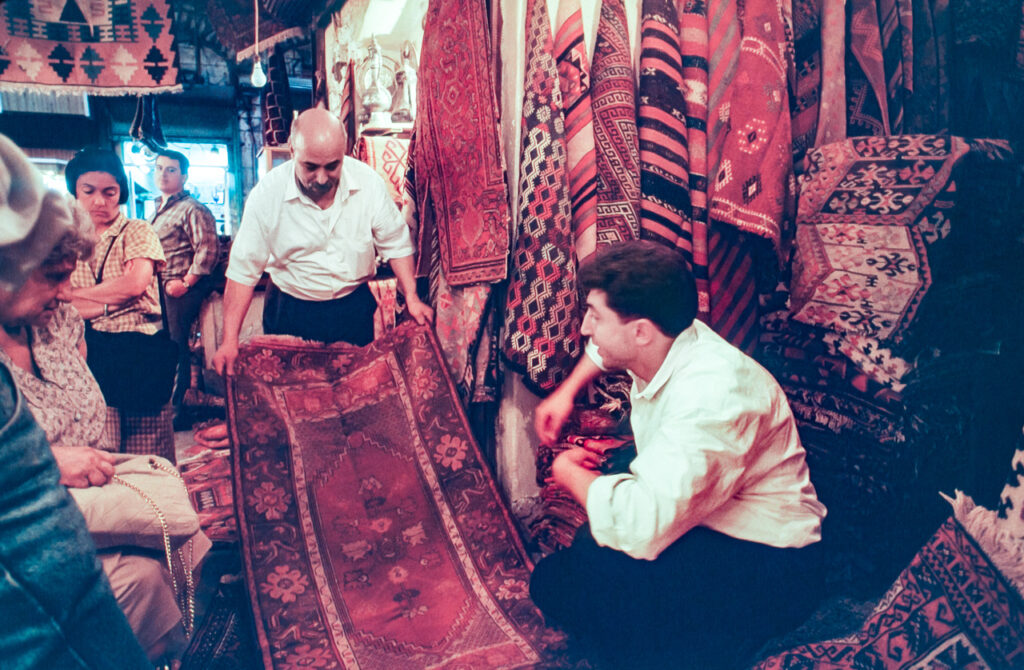
I became a compulsive shopper when I lived in Aleppo. I always felt a desire to buy one more carpet, or one more kilim or one more camel bag. I don’t know if it was because I loved carpets so much or if I just loved the experience of buying them.
Of all the speciality souqs in Al-Madina, the carpet souq was my favourite. I befriended a salesman there, Ali, and would frequently visit him. On rainy Saturdays or times when I had nothing to do the compulsion would strike and I felt the urge to drive to the souq and buy a carpet. Ali would see me approach and pull out a stool and pour an apple tea. He knew it wasn’t going to be a quick sale, but there would be a sale eventually as I never left empty handed.
I’d tell him what fancied me at the moment – it might be a Persian carpet or an Afghan kilim or a small pair of camel bags – and he pulled out and show me the new stock. I’d sit on my stool and sip my apple tea and say either ‘La’ and shake my head to reject it or I would shrug and say ‘Mumkin’ and he would put it in the ‘maybe’ pile. I never showed too much enthusiasm as that would drive the price up. The best he got out of me was a ‘mumkin’ and a disinterested look. An hour or two would pass and other customers would come in but I just sat on my stool and drank my apple tea and enjoyed the ambience while I practiced my Arabic and Ali practiced his English.
Little by little I would then whittle down the ‘mumkins’. When I got to a few I liked I would pick them up and turn them over and study the knots for the carpets and the weave for the kilims and smell them and try to imagine some young girl in Iran working for up to a year to knot a single carpet. I had read books about oriental carpets and pretended to appear as if I knew what I was looking for – it was all part of the show to get the price down.
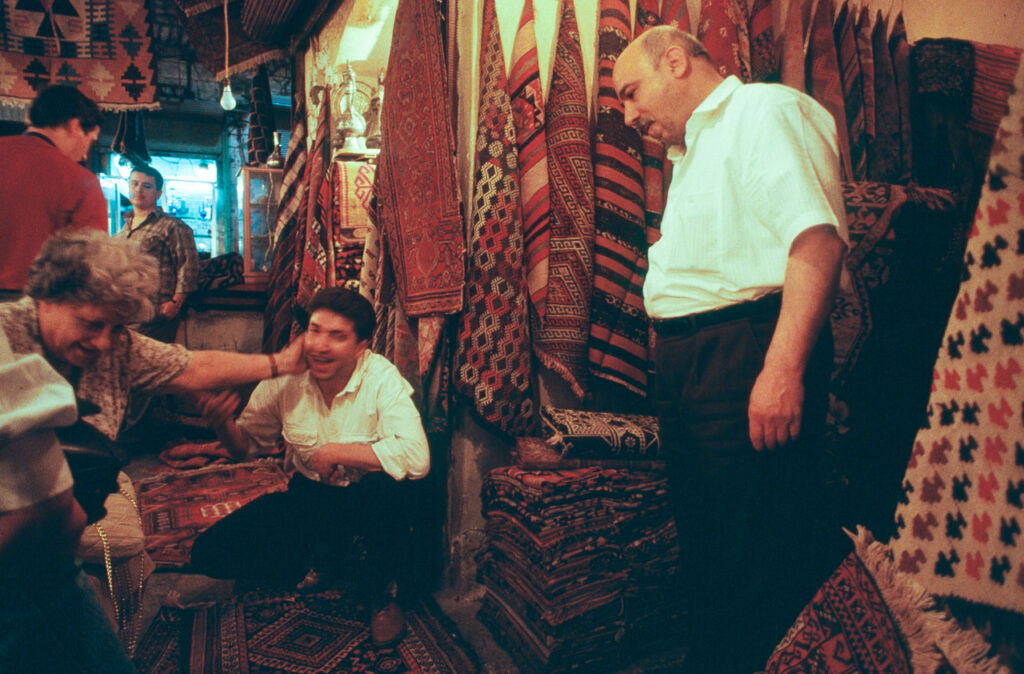
When we finally got it down to a single carpet, the negotiating began. Ali always offered me a good starting price which I really was happy to pay but I knew he wouldn’t respect me if I accepted his first offer and he’d write me off as a tourist. So I bargained hard and examined the carpet and ran my fingers over the defects – which were many as they were old and hand made – and the price slowly came down. Eventually we reached a price and then the show was over and it was all smiles and handshakes and I couldn’t wait to get home and roll out my new purchase.
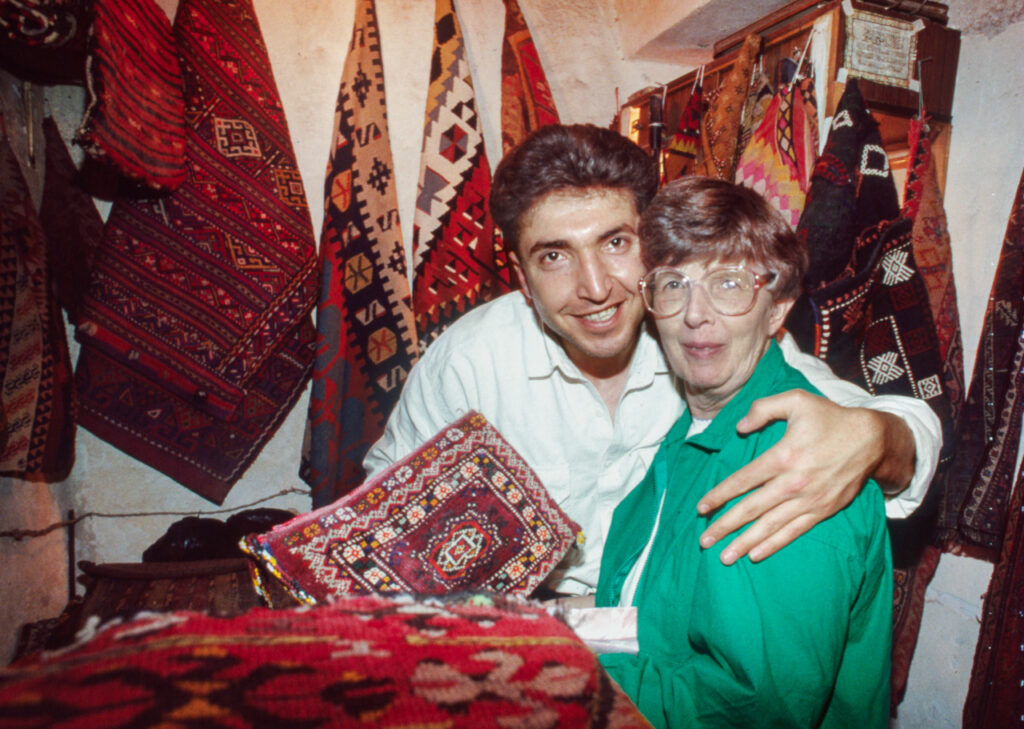
I always would bring any visitors to see my man in the souq, Ali the carpet seller. Mom wanted something little to bring home and Ali was most patient and showed her just about everything he had. He flattered her using what little English he knew and just made the whole experience fun. In the end I don’t think mom found anything in her budget range but Ali gave her a little square of kilim for free as a souvenir of her time in the souq.
It was magical.

